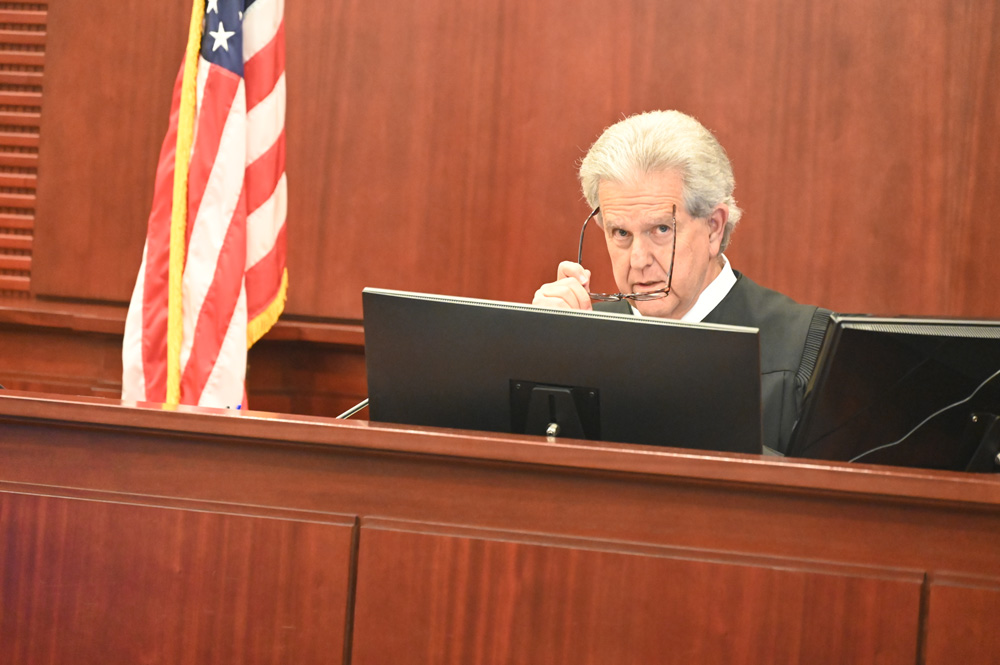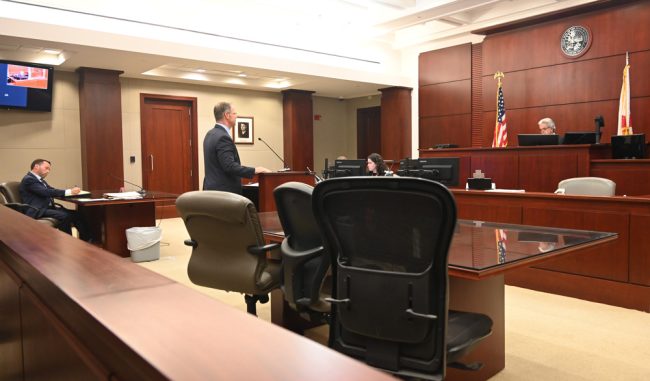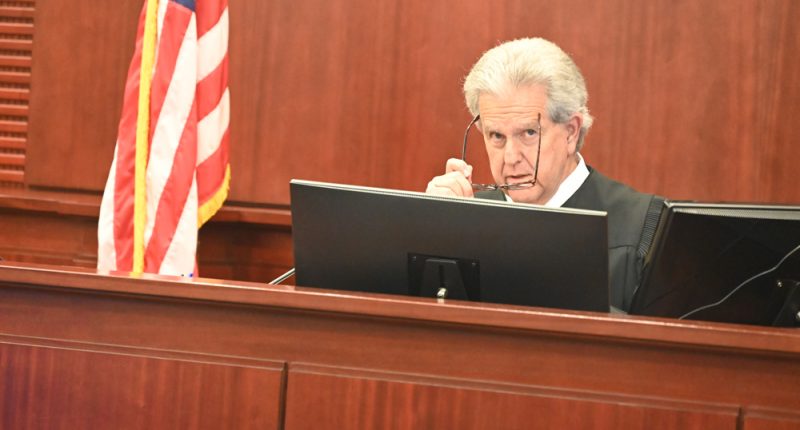
End times may finally be approaching for the Old Dixie Motel, the wreck and eyesore that has exasperated Flagler County government and the property’s neighbors for years after the Country Hearth Inn went out of business in 2008.
Senior Judge Rick Orfinger today directed the attorney representing Flagler County to draft an order that would grant the county’s motion for a final judgment in its favor nearly four years after an obscure partnership bought the property, made a string of empty promises to rebuild it, flouted a court order to put up a bond and ran up $115,000 in contempt fines.
Demolition of the building could follow.
The county’s been there before. The previous owners had faced a similar fate until they sold the property to the current owners at their 11th hour, who re-started the clock on a carousel of delays, obfuscations, powerpoints of pledges and contempt of court. But the county has never been so close to ending the grind.
The proposed order is to be sent to Circuit Judge Chris France. If France signs it, which is expected, it would result in foreclosing of the the motel property, leading to a judicial sale that could result in the county’s ownership and demolition of the relic. What’s left of the building stands today as little more than a fading-yellow shell. The order would require the partnership to provide the $250,000 bond it’s owed since May 2021. The county would use that money to “abate” the property, or clean it up–in other words, demolish the building, as it has sought to do for years.
The motel owners, known as David Shebeiro and Manny Gomez, did not show up for the hearing, nor did their representation. Their attorney until recently, Theodore D’Apuzzo, asked the court to withdraw as the owners’ counsel. France granted the request in mid-February. The county suspected it may have been another tactic to delay the county’s motion for final judgment. If so, it didn’t work.
No one has any illusions that the partnership will produce that bond, least of all Orfinger, the retired Fifth District Circuit of Appeal judge who was sitting in for Circuit Court Judge Chris France at this afternoon’s hearing. Nor does the judge expect the partnership to pay the $115,000 fine, or the attorney fees to which the county is entitled. Whatever demolition costs are ahead, the county will likely have to bear them.
Orfinger spelled out to Abraham McKinnon, the county’s counsel, how the order should be written. He wanted two issues addressed: how the $250,000 would be spent, if ever paid, and to whom would the $115,000 fine be paid, if ever produced. The $250,000 would go to the county. The $115,000 would not.

“From the way I read this order, it was a coercive, not a compensatory” fine, Orfinger said, citing state law and France’s previous order imposing $1,000 a day in fines on the partnership, after its deadline for paying the $250,000 passed. “France didn’t say, well, the counties had to bring this action, and I’m going to find you, you know, $20,000 for attorney’s fees. This was: do it, or this is a club over your head of $1,000 a day.”
Because it is a coercive fine–a fine intended to force the defendant to pay the bond, not a compensatory fine, or a fine intended to compensate the county for other losses. As a coercive fine, by law it may only be paid to the clerk’s forfeiture fund. The county asked the court to maintain jurisdiction over the payment of attorney fees, which would be owed the county, and which the county intends to pursue.
All that may be moot if, as likely, the partnership does not pay up, leaving the county bearing all costs.
Assistant State Attorney Sean Moylan also appeared in court for the 10-minute hearing.
It’s not over. The judge must sign the judgment in the county’s favor. The partnership would then have 10 days to request a re-hearing, and after that another window to appeal. Could the court change its mind between now and the signing of the order? Possibly. But that’s unlikely.
On a parallel track, the county has been pursuing a demolition order order issued by its building official, and litigated before a special magistrate. The magistrate agreed that the building is a nuisance and may be demolished–but not until the owners have had a chance to make good on promises to rebuild it. He issued that first order last year. In January, when the county pressed the issue, the magistrate in late January set a hard, five-month deadline for the owners to show progress on the property.
Not by design, but absent the partnership pulling a Lazarus with the Country Hearth Inn, the two cases appear to be converging toward an identical conclusion.
![]()
Click On:
|









